
Top Insurance Digital Transformation Strategy Agency to Work With - February 2026
Introduction
The insurance industry has undergone rapid transformation over the past year, driven by evolving customer expectations, regulatory shifts, and the rise of AI and automation. In February 2026, selecting the right insurance digital transformation strategy agency is more crucial than ever for long-term success.
While many insurance companies are expanding internal digital teams, partnering with an insurance digital transformation strategy agency offers specialized expertise, overcomes bandwidth constraints, and often proves more cost-effective. In the following guide, we’ll uncover the top 10 insurance digital transformation strategy agency partners leading the industry today.
Top 10 Insurance Digital Transformation Strategy Agencies
1. G&Co.
G&Co. is a global leader in digital transformation for insurance, helping carriers modernize their operations, elevate customer experiences, and unlock growth through digital innovation in insurance.
Recognized as the best insurance digital transformation strategy agency, G&Co. partners with leading insurers across life, P&C, and health segments to develop future-ready digital insurance platforms and omnichannel customer experiences. Their work includes rethinking claims, improving acquisition funnels, and driving operational efficiency with intelligent automation. Their strength lies in delivering digital insurance solutions that scale and align directly with business goals, positioning clients at the forefront of digital transformation in the insurance industry.
G & Co. is a minority business enterprise (MBE), as certified by the National Minority Supplier Development Council (NMSDC). If diversity inclusion is a part of your supplier process, contact us—we may be a great fit for your enterprise.

2. BCG (Boston Consulting Group)
BCG empowers insurance companies to embrace end-to-end digital transformation in insurance through future-ready operating models and AI-powered capabilities. As one of the most trusted strategy firms globally, BCG’s insurance practice helps clients achieve competitive advantage through digital insurance platforms, cloud modernization, and customer journey redesign. Their insurance clients range from global reinsurers to regional multiline carriers, all of whom rely on BCG to architect enterprise-wide digital transformation in the insurance industry and build scalable, tech-forward operating models.
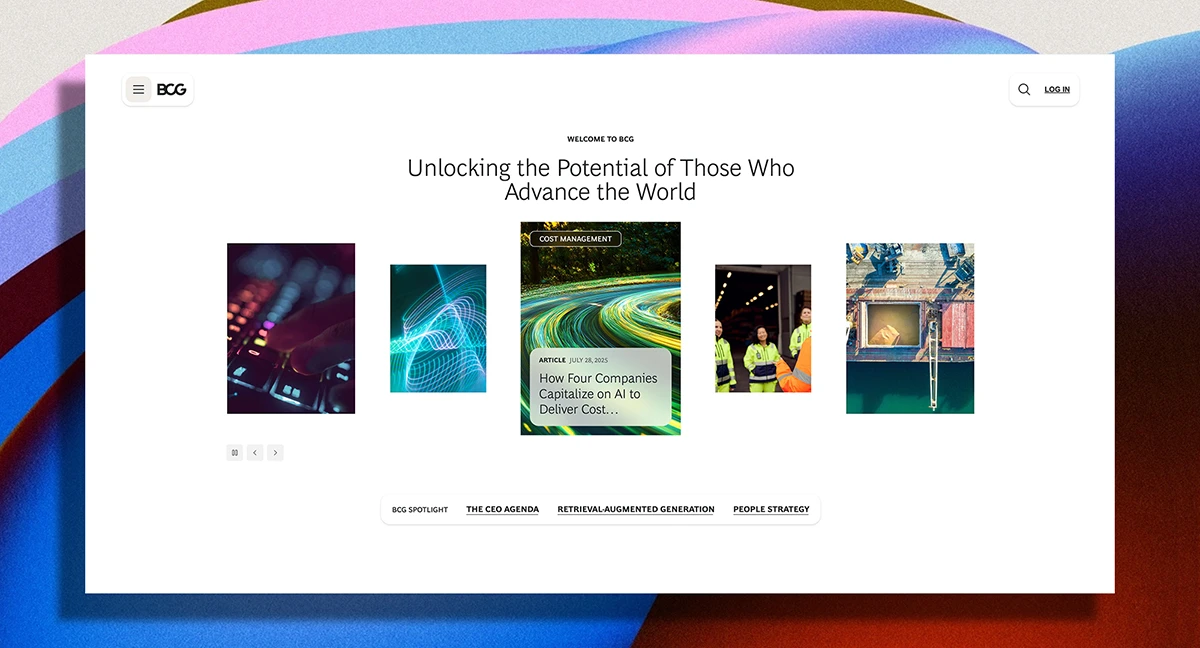
3. McKinsey & Company
McKinsey & Company helps insurance providers scale digital transformation in insurance with a focus on tech enablement, agile culture, and customer-centric design.
McKinsey is a top-tier insurance digital transformation strategy agency known for driving high-impact transformation efforts across underwriting, claims, and distribution. Their digital insurance solutions often incorporate advanced data and analytics, AI, and automation to streamline operations and personalize offerings. With global insurers and InsurTech startups as clients, McKinsey leads in guiding digital innovation in insurance that delivers measurable financial performance.

4. Cognizant
Cognizant drives digital transformation for insurance companies through integrated technology services, platform modernization, and intelligent process automation.
A trusted digital insurance partner, Cognizant helps insurers reduce costs and improve time-to-market by overhauling legacy systems, developing cloud-native digital insurance platforms, and implementing predictive analytics. Known for its scale and technical capabilities, Cognizant leads digital transformation in the insurance industry with specialized services in policy, billing, and claims modernization for top-tier insurance enterprises.
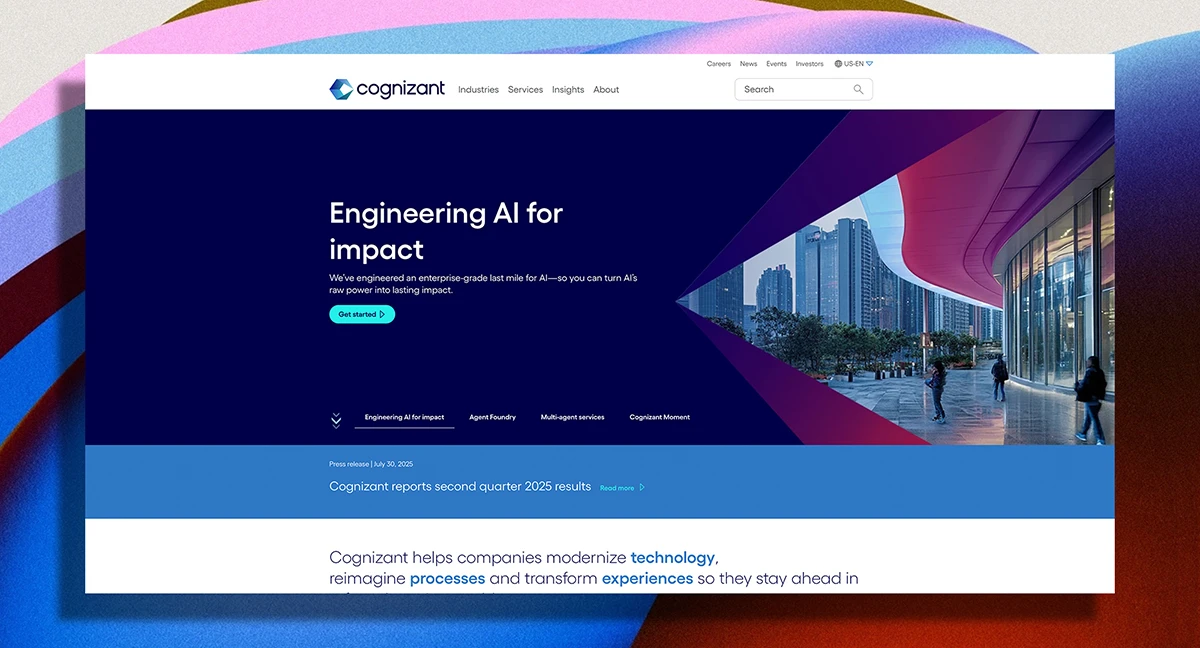
5. Bain & Company
Bain & Company partners with insurers to unlock digital transformation in insurance by aligning strategy, customer experience, and technological innovation.
As a leading insurance digital transformation strategy agency, Bain is well-regarded for helping clients launch new digital business models, reinvent customer journeys, and digitize distribution. Their digital insurance solutions focus on measurable outcomes through agile delivery, deep customer insight, and next-gen platform strategy. Bain works with both legacy carriers and innovative InsurTechs to drive competitive edge through digital innovation in insurance.
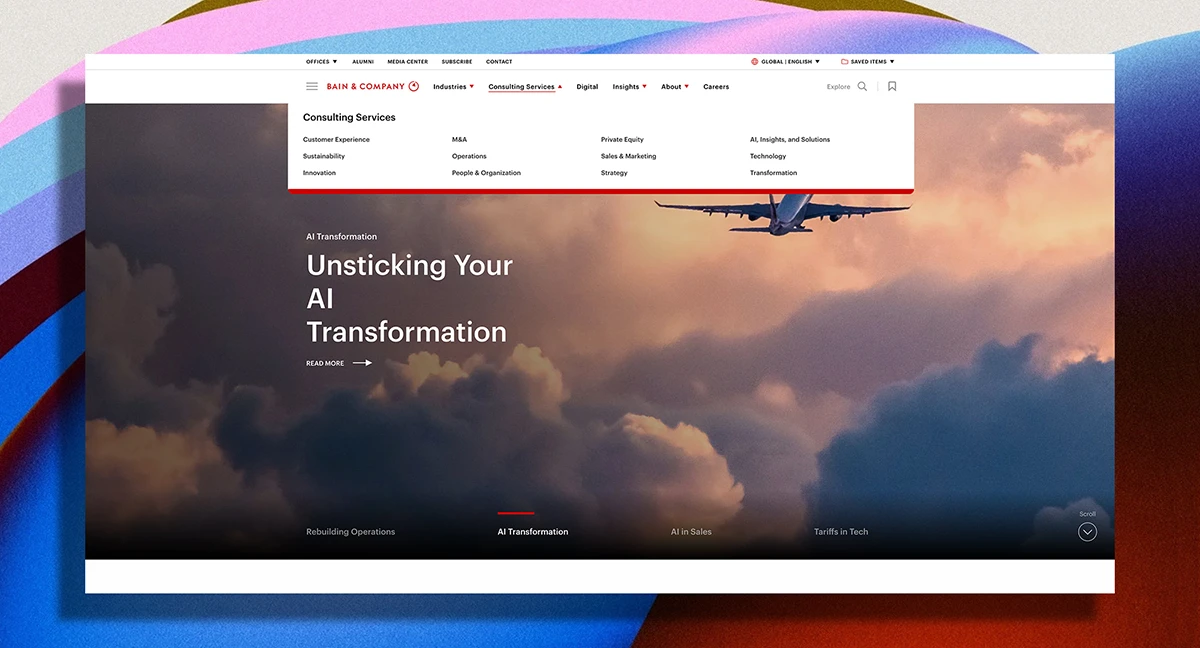
6. Capgemini
Capgemini transforms insurance businesses by delivering digital insurance solutions that enhance agility, customer centricity, and operational efficiency.
Capgemini is known for enabling insurers to lead with technology—developing digital insurance platforms that harness data ecosystems, AI, and process automation. Their insurance client base spans health, P&C, and commercial lines, with engagements focused on omnichannel enablement, risk analytics, and smart claims. Their leadership in digital transformation in the insurance industry is reinforced through initiatives like the World Insurance Report, setting benchmarks for innovation and adoption.
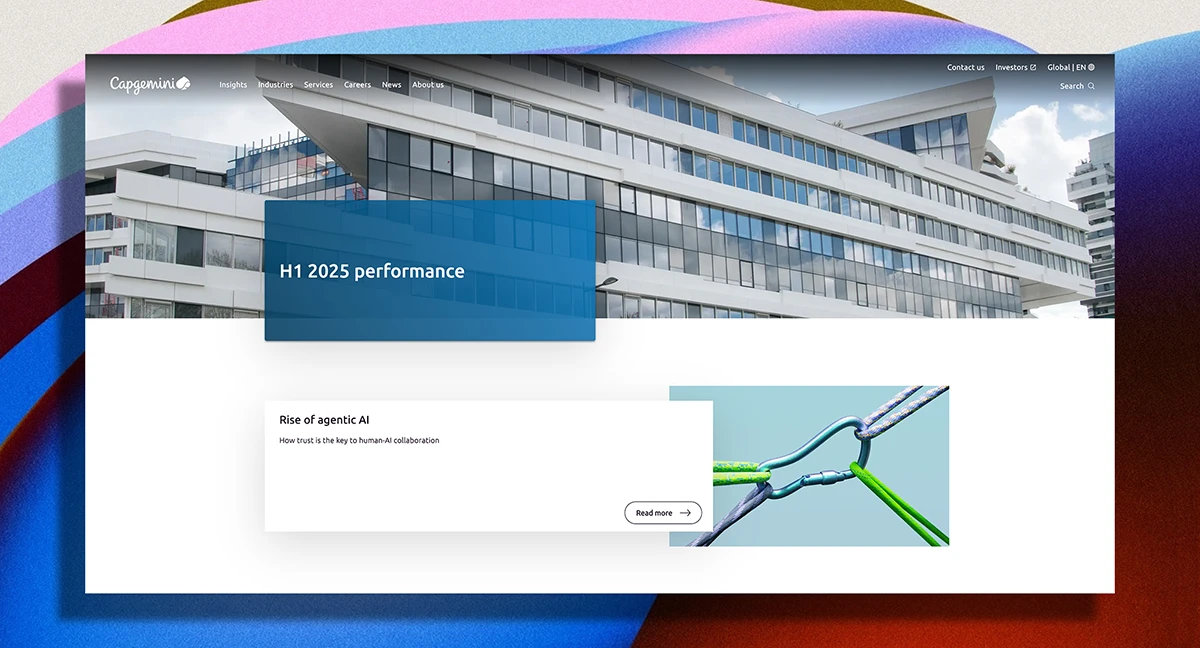
7. Slalom
Slalom supports mid-to-large insurers with practical, outcome-driven digital transformation in insurance by merging strategy with modern technology delivery.
Slalom’s nimble and collaborative approach makes them a top insurance digital transformation strategy agency for insurers looking to quickly deploy digital insurance solutions with high ROI. They specialize in modernizing customer portals, digitizing servicing workflows, and integrating third-party InsurTechs for added functionality. Their work accelerates digital innovation in insurance without requiring costly system overhauls, making them ideal for scalable transformation.
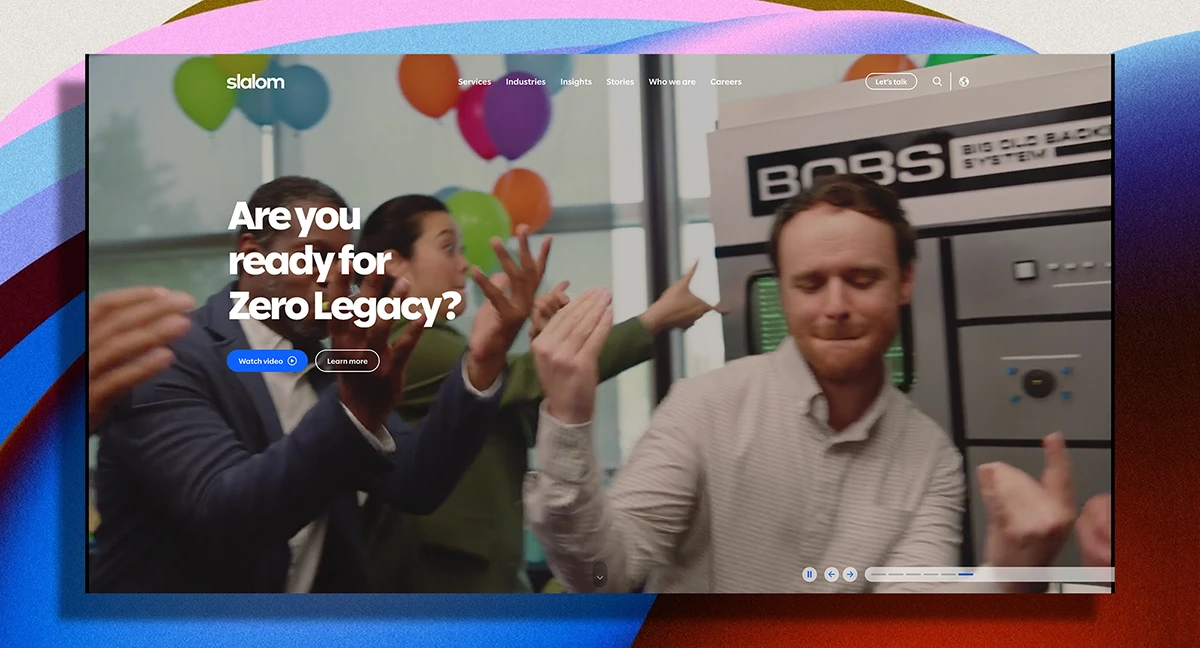
8. Deloitte Digital
Deloitte Digital helps insurers reimagine their digital future by combining industry consulting with technology development for digital transformation in insurance.
A powerhouse in the insurance space, Deloitte Digital delivers end-to-end solutions—from digital insurance platform development to claims automation and AI-driven underwriting. Their clients include major multiline and specialty carriers seeking future-ready architectures. Deloitte leads digital transformation in insurance industry-wide by aligning innovation strategy with long-term growth and customer value creation.
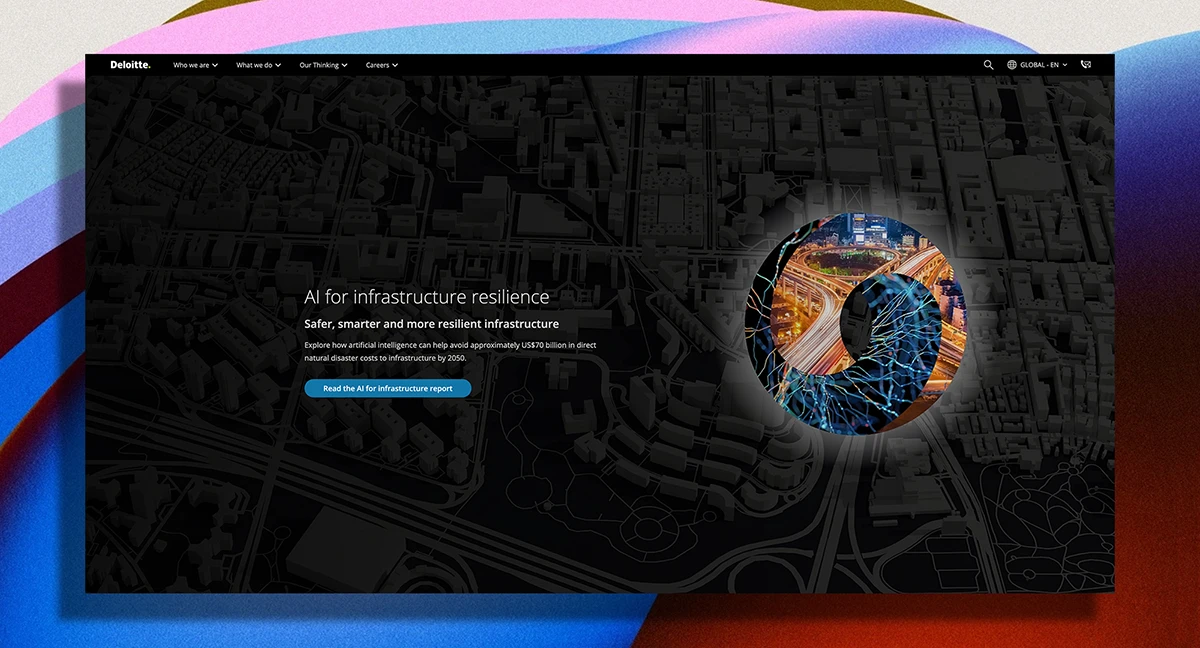
9. NTT DATA
NTT DATA delivers global-scale digital transformation for insurance clients through robust platforms, automation, and data-driven optimization.
This insurance digital transformation strategy agency stands out for its engineering-led approach, offering solutions in digital policy management, omnichannel self-service, and core system modernization. NTT DATA enables insurers to launch digital insurance solutions faster and with reduced risk, leveraging reusable components, scalable architecture, and deep domain expertise.
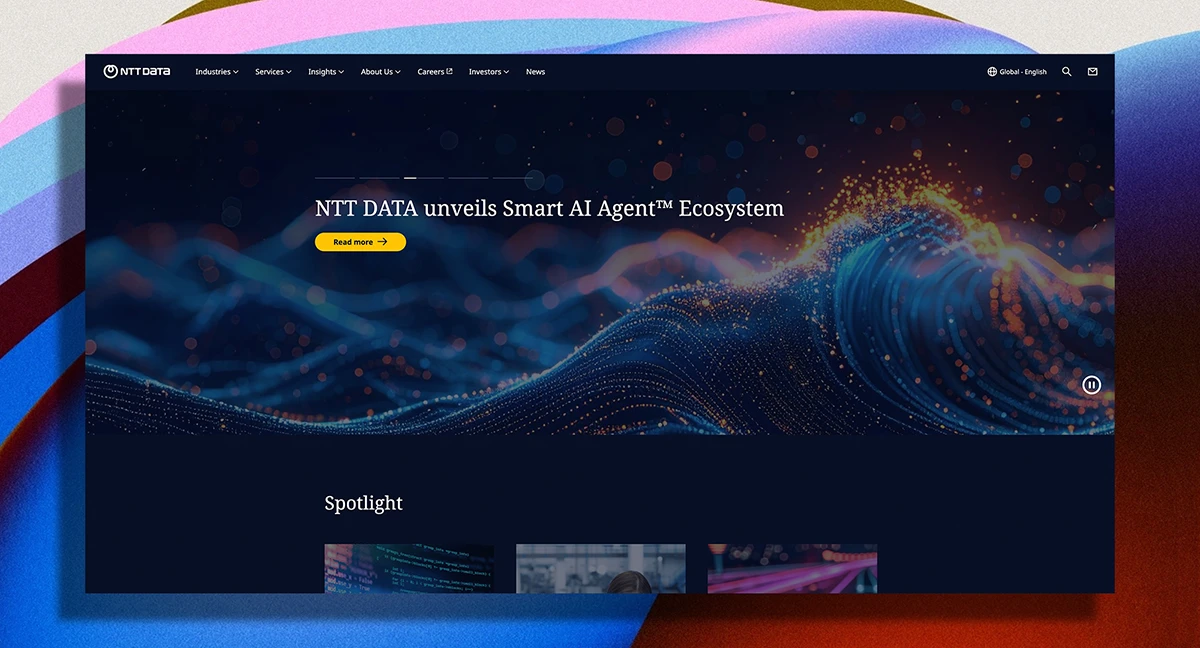
10. Zensar Technologies
Zensar Technologies brings a blend of design thinking and engineering to accelerate digital transformation for insurance carriers and brokers.
Zensar is an emerging insurance digital transformation strategy agency that focuses on agility and innovation. Their offerings include AI-based underwriting, chatbot-powered policy servicing, and cloud-first digital insurance platforms. With a strong emphasis on digital innovation in insurance, Zensar helps clients improve speed-to-market and create frictionless, future-proof customer experiences.

What Is an Insurance Digital Transformation Strategy Agency?
An insurance digital transformation strategy agency is a specialized consultancy or technology partner that helps insurance companies modernize their systems, processes, and customer experiences by implementing digital insurance platforms, automation tools, and data-driven strategies. These agencies offer deep expertise in areas such as legacy system modernization, AI-powered underwriting, omnichannel service delivery, and compliance-oriented digital solutions. By leveraging digital transformation in insurance industry ecosystems, such agencies support insurers in achieving greater agility, reducing operational costs, and delivering more personalized policyholder experiences. Their role is pivotal in driving digital innovation in insurance, enabling carriers to stay competitive in a rapidly evolving market.
Choosing the right insurance digital transformation strategy agency is critical for carriers seeking to modernize their operations and stay ahead in a rapidly evolving landscape. As the insurance industry faces increasing demands for personalized experiences, regulatory compliance, and operational efficiency, digital transformation in insurance has become a necessity rather than a luxury. From optimizing legacy systems to building scalable digital insurance platforms, these agencies play a pivotal role in equipping insurers with the tools and strategies needed for long-term growth.
This section will explore the key capabilities that define a leading insurance digital transformation strategy agency—highlighting how these firms enable digital transformation for insurance companies through advanced technologies, data integration, and customer-centric innovation. By understanding the full scope of digital insurance solutions and the impact of digital innovation in insurance industry operations, decision-makers can better evaluate which agency is best suited to support their transformation goals.
What Services Do Insurance Digital Transformation Strategy Agencies Provide?
Digital Insurance Platform Development
An insurance digital transformation strategy agency helps clients design, build, and implement robust digital insurance platforms that serve as the foundation for policy administration, underwriting, claims management, and customer engagement. These platforms enable insurers to centralize data, streamline operations, and provide real-time access across touchpoints. Leveraging modern architecture and cloud-native technologies, the agency ensures that the digital insurance solution is scalable, secure, and future-proof—supporting the broader goals of digital transformation in insurance and enhancing operational agility.
Legacy System Modernization
One of the core services of an insurance digital transformation strategy agency is modernizing outdated core systems to reduce technical debt and improve business performance. This involves migrating legacy infrastructure to modern digital insurance platforms, refactoring codebases, and implementing microservices-based architectures. These modernization efforts allow insurers to integrate digital insurance solutions that support automation, enhance system interoperability, and increase processing speed—delivering long-term value as part of comprehensive digital transformation for insurance.
AI-Powered Underwriting and Claims Automation
Insurance Digital Transformation Strategy Agencies deploy artificial intelligence and machine learning to automate critical functions such as underwriting and claims processing. These digital insurance solutions reduce manual intervention, speed up decision-making, and improve accuracy by analyzing vast datasets in real time. AI-powered tools support the digital transformation in insurance industry operations by lowering operational costs, improving risk evaluation, and delivering more consistent policyholder experiences.
Omnichannel Customer Experience Design
A leading insurance digital transformation strategy agency creates seamless omnichannel experiences across web, mobile, agent portals, and customer support systems. This service includes redesigning digital touchpoints to align with modern customer expectations, ensuring consistency and personalization across every interaction. By leveraging digital innovation in insurance, the agency enables insurers to strengthen policyholder engagement, increase satisfaction, and drive retention through cohesive digital journeys.
Data Integration and Analytics
These agencies provide enterprise-grade data integration and analytics services that unify data across policy, claims, billing, and CRM systems. A strong insurance digital transformation strategy agency enables clients to derive actionable insights from their data by building centralized analytics platforms, deploying predictive modeling, and establishing real-time dashboards. These capabilities are central to digital transformation in the insurance industry, empowering data-driven decision-making and long-term performance optimization.
Regulatory Compliance and Risk Management Technology
Digital transformation for insurance must align with complex regulatory requirements across different markets. Agencies support clients by integrating compliance-focused digital insurance solutions that streamline reporting, monitor risks, and ensure adherence to evolving industry standards. Whether implementing automated audit trails or AI-based fraud detection, these solutions help insurers meet regulatory expectations while fostering trust and transparency.
Cloud Migration and Infrastructure Optimization
Insurance digital transformation strategy agencies assist clients in moving their core systems, applications, and workloads to cloud environments—enhancing scalability, resilience, and cost efficiency. Cloud-based digital insurance platforms support faster innovation cycles and simplify IT operations. This service plays a vital role in achieving digital transformation in insurance by enabling insurers to deploy new capabilities quickly, respond to market demands, and operate with greater agility.
InsurTech Integration
To stay competitive, insurers increasingly partner with or integrate InsurTech solutions into their ecosystems. An insurance digital transformation strategy agency facilitates this by connecting insurers with third-party tools that enhance specific functions such as telematics, usage-based insurance, and personalized pricing. These integrations support digital innovation in insurance industry models and allow traditional carriers to evolve alongside disruptive digital-first entrants.
Product and Service Innovation Strategy
An agency specializing in insurance digital transformation also helps clients develop new products and services that align with shifting consumer behaviors and market trends. By conducting market research, prototyping, and user testing, agencies guide insurers in launching innovative offerings—such as on-demand coverage or embedded insurance—that differentiate their brand. These services ensure insurers remain at the forefront of digital transformation in the insurance industry and continue to create customer value.
Change Management and Digital Enablement
Successfully implementing digital transformation in insurance requires cultural and operational change. Agencies offer structured change management programs, training modules, and digital capability building to ensure adoption across the enterprise. These services empower employees, align leadership, and institutionalize new workflows, making transformation efforts more sustainable and impactful over time.
Let’s kickstart the conversation and design stuff people will love.

How Long Does an Insurance Engagement Take to Complete?

Understanding the timeline of an engagement with an insurance digital transformation strategy agency is essential for setting realistic expectations and aligning internal resources. The duration of a digital transformation in insurance can vary widely based on the complexity of the project, the maturity of existing systems, and the scope of digital insurance solutions being implemented. From cloud migrations and platform builds to end-to-end process automation and InsurTech integrations, each initiative requires careful planning, execution, and testing.
This section will outline the typical phases and timeframes involved in working with an insurance digital transformation strategy agency, helping insurers better anticipate project milestones and resource needs. Whether pursuing a full-scale transformation or targeting specific areas of digital innovation in insurance, understanding the timeline ensures alignment between strategy, execution, and long-term business goals.
Project Scope and Complexity
The scope and complexity of the engagement are primary factors that influence the duration of a partnership with an insurance digital transformation strategy agency. A comprehensive digital transformation in insurance involving enterprise-wide changes—such as legacy system replacement, customer experience redesign, and digital insurance platform implementation—can span 12 to 24 months. In contrast, smaller-scale initiatives like digital insurance solution enhancements or InsurTech integrations may be completed in 3 to 6 months. Understanding the depth and breadth of services required is essential to determining a realistic timeline.
Current Technology Infrastructure
The maturity and condition of an insurer’s existing technology infrastructure significantly affect the timeline of a digital transformation for insurance. Organizations operating on outdated or fragmented legacy systems typically require more time for data migration, system integration, and platform modernization. Insurance digital transformation strategy agencies often need to assess current systems, identify technical gaps, and build new digital insurance platforms incrementally—making this a time-intensive but critical component of the engagement.
Regulatory and Compliance Requirements
Compliance with regulatory standards across jurisdictions introduces additional complexity and can extend timelines. Insurance digital transformation strategy agencies must navigate data privacy laws, reporting requirements, and regional insurance regulations while designing digital insurance solutions. Ensuring that digital transformation in the insurance industry meets these standards often involves extra rounds of audit, testing, and documentation, which can add weeks or even months to the overall project duration.
Stakeholder Alignment and Decision-Making
Engagement timelines are often impacted by the speed at which internal stakeholders align around goals, budgets, and key decisions. An insurance digital transformation strategy agency depends on timely input and approvals from executive sponsors, IT leaders, compliance teams, and business unit heads. Delays in feedback or decision-making can slow implementation and extend the duration of the digital transformation in insurance initiatives.
Data Quality and Integration Complexity
High-quality, accessible data accelerates the deployment of digital insurance platforms, while poor data hygiene or siloed systems can significantly slow progress. Insurance digital transformation strategy agencies often dedicate the early phase of a project to data audits, cleansing, and integration planning. For projects involving predictive analytics, AI, or personalization, reliable data is foundational, and extensive data preparation may be necessary to deliver successful digital insurance solutions.
Customization vs. Off-the-Shelf Solutions
Whether a digital insurance solution is being custom-built or based on a configurable, off-the-shelf platform will influence how long an engagement takes. Custom solutions—tailored to a specific insurer’s workflows, product lines, and branding—require extended development and testing cycles. Meanwhile, out-of-the-box digital insurance platforms can be deployed more rapidly, particularly if business processes align closely with standard platform features, speeding up the timeline for digital transformation for insurance.
Organizational Readiness and Change Management
The insurer’s readiness to adopt new technologies and adapt internal processes plays a crucial role in project timelines. Insurance digital transformation strategy agencies often include change management and enablement programs in their engagements, which can extend the overall timeline but are necessary for long-term success. A digitally mature organization with agile teams and strong executive sponsorship can accelerate digital innovation in insurance more efficiently than one that requires significant cultural or operational transformation.
Phased Rollouts and Pilot Testing
Most Insurance digital transformation strategy agencies recommend phased rollouts to minimize risk and optimize performance. Initial phases typically involve pilot testing digital insurance solutions in specific regions or product lines before full-scale deployment. While this staged approach ensures better results and mitigates operational disruption, it adds time to the overall transformation roadmap. However, it is often the most effective path to successful digital transformation in the insurance industry.
Vendor and Third-Party Dependencies
Engagements that involve integration with third-party vendors, InsurTechs, or cloud service providers may be subject to extended timelines based on external availability, onboarding processes, and SLA agreements. Insurance digital transformation strategy agencies must coordinate across multiple parties to ensure digital insurance platform compatibility, data flows, and joint security standards. These dependencies can introduce variable delays and require flexible project scheduling.
Testing, Validation, and Post-Launch Optimization
Final phases of any digital transformation in insurance project involve extensive user testing, validation, and iteration. Insurance digital transformation strategy agencies conduct performance testing, usability checks, and compliance validation before go-live. After launch, most agencies offer post-implementation support to optimize digital insurance solutions based on real-world usage. These final stages ensure the longevity and effectiveness of the transformation, but they add necessary time to the full engagement lifecycle.
How Insurance Digital Transformation Strategy Agencies Price Their Work
When considering a partnership with an insurance digital transformation strategy agency, understanding the pricing structure is essential for budgeting, ROI evaluation, and long-term planning. The cost of digital transformation in insurance varies widely based on project scope, technical complexity, and the depth of strategic involvement required. Whether the goal is to implement a full-scale digital insurance platform, modernize legacy systems, or deploy targeted digital insurance solutions, pricing will reflect the level of customization, technology stack, and duration of the engagement.
This section will break down the key factors that influence pricing models, helping insurers navigate the financial investment involved in digital transformation for insurance. By gaining clarity on cost drivers—such as resource allocation, integration demands, and ongoing support—decision-makers can better assess the value of working with a digital transformation agency and plan strategically for innovation in the insurance industry.
Scope of Digital Transformation
The breadth and depth of the digital transformation in insurance heavily influence pricing. Projects that involve complete modernization—such as replacing legacy systems, building a digital insurance platform, and launching omnichannel customer experiences—require more time, resources, and strategic oversight. As a result, insurance digital transformation strategy agencies charge higher fees for end-to-end transformations compared to narrower initiatives like digital claims automation or InsurTech integrations. The greater the scope, the more complex the coordination and technology implementation, directly impacting the overall cost.
Level of Customization
Highly tailored digital insurance solutions require more extensive discovery, design, and development work, driving up the engagement cost. An insurance digital transformation strategy agency must often build custom workflows, integrate unique data models, and adapt platforms to an insurer's specific needs, especially for large enterprise clients. In contrast, engagements that rely on pre-configured digital insurance platforms or off-the-shelf components generally come at a lower price point. The level of customization reflects both the agency’s development efforts and the client’s operational intricacies.
Technology Stack and Infrastructure
The technologies selected for implementation—whether cloud-native platforms, AI tools, or API-driven ecosystems—directly impact pricing. Insurance digital transformation strategy agencies assess the costs associated with licensing, integration, hosting, and ongoing support when recommending a tech stack. Solutions built on high-performance digital insurance platforms or requiring deep integration with third-party services will often incur higher costs due to the added complexity and vendor coordination involved in digital transformation for insurance.
Duration of Engagement
Longer-term engagements that span 12–24 months typically involve higher costs due to sustained resource allocation, program management, and continuous optimization. Insurance digital transformation strategy agencies may offer monthly retainers, milestone-based billing, or fixed project pricing depending on the timeline. Pricing structures are adjusted based on how long consultants, engineers, designers, and analysts are required to maintain progress toward the insurer’s digital innovation in insurance initiatives.
Team Composition and Expertise
The size and specialization of the project team play a major role in determining pricing. Projects that require senior strategists, data scientists, solution architects, and regulatory compliance experts are priced higher than those staffed primarily with developers or project managers. A top-tier insurance digital transformation strategy agency often brings multidisciplinary teams to ensure comprehensive delivery, which increases costs but maximizes ROI for complex digital transformation in the insurance industry.
Data Migration and Integration Complexity
Engagements involving extensive data migration from legacy systems or integration with multiple platforms—including CRM, ERP, or underwriting tools—are typically more expensive. Insurance digital transformation strategy agencies allocate additional resources for mapping, cleansing, and synchronizing data to ensure seamless deployment of digital insurance solutions. Complex integration requirements also demand more testing and troubleshooting, adding to the overall cost of digital transformation for insurance.
Compliance and Security Requirements
For insurers operating in highly regulated environments, the cost of digital transformation in insurance rises with the need for enhanced security features, data privacy protocols, and compliance automation. Insurance digital transformation strategy agencies must often tailor digital insurance solutions to meet evolving regulatory frameworks, which requires specialized knowledge, legal oversight, and additional technology investments—factors that contribute to higher pricing.
Post-Implementation Support and Optimization
Ongoing support, maintenance, and optimization services are typically priced separately or built into long-term contracts. Insurance digital transformation strategy agencies often offer service-level agreements (SLAs) to monitor performance, manage updates, and address issues post-launch. Continuous improvements to the digital insurance platform and regular updates to reflect changes in customer behavior or industry regulations may add recurring costs, especially in innovation-focused transformation models.
Geographic Scale and Rollout Strategy
The cost of a digital transformation for insurance also varies based on the geographic reach of the project. A global insurer rolling out digital insurance solutions across multiple markets will face higher costs due to localization, regulatory variation, language adaptation, and logistical coordination. Insurance digital transformation strategy agencies price these large-scale rollouts based on the added strategic and operational complexity required to ensure successful implementation in diverse markets.
Client Readiness and Internal Capabilities
The maturity of an insurer’s internal capabilities can reduce or increase the cost of transformation. When clients already possess strong internal IT, data, or change management teams, insurance digital transformation strategy agencies can collaborate more efficiently, reducing the need for redundant staffing and extended discovery phases. Conversely, if an insurer lacks digital readiness, agencies must invest more in training, enablement, and foundational work, which drives up project costs in pursuit of sustainable digital innovation in insurance.
Why Hire an insurance digital transformation strategy agency?

In an era defined by evolving customer expectations, regulatory pressures, and rapid technological advancements, insurance companies must embrace transformation to remain competitive. Digital transformation in insurance is no longer optional—it is critical to modernizing operations, improving customer engagement, and unlocking new growth opportunities. However, navigating this shift requires specialized expertise, strategic foresight, and the ability to execute across complex systems and processes.
This section will explore the key reasons why partnering with an insurance digital transformation strategy agency is essential for insurers aiming to lead in a digital-first market. From implementing scalable digital insurance platforms to accelerating innovation and ensuring compliance, these agencies deliver the capabilities and experience needed to drive meaningful digital transformation for insurance organizations.
Deep Industry and Regulatory Expertise
Insurance digital transformation strategy agencies bring deep knowledge of the insurance industry’s complex regulatory environment, ensuring that all digital insurance solutions meet compliance standards across jurisdictions. From HIPAA and GDPR to local data privacy laws, these agencies help insurers navigate evolving requirements while maintaining operational integrity. Their understanding of the insurance regulatory landscape is critical to executing digital transformation in insurance industry settings, where accuracy, security, and accountability are paramount.
Accelerated Implementation of Technology
Working with an insurance digital transformation strategy agency allows insurers to rapidly deploy digital insurance platforms and next-gen tools without overburdening internal teams. These agencies offer proven methodologies, reusable frameworks, and scalable technology stacks that reduce time to market for digital insurance solutions. By streamlining implementation, they enable faster realization of ROI and help clients lead with digital innovation in insurance.
Access to Specialized Talent
Insurance digital transformation strategy agencies provide access to multidisciplinary experts—ranging from digital architects and AI engineers to customer experience strategists and compliance specialists. These capabilities are often unavailable or difficult to maintain in-house. By partnering with an agency, insurers gain immediate access to professionals who understand how to execute digital transformation for insurance organizations at scale and with precision.
End-to-End Transformation Capabilities
Top-tier agencies offer comprehensive services that cover every aspect of digital transformation in the insurance industry—from strategy and platform development to change management and post-launch optimization. Their ability to execute end-to-end ensures alignment across business units, reduces silos, and enables the deployment of holistic digital insurance solutions. This unified approach enhances consistency, speed, and strategic coherence across the transformation journey.
Reduction in Operational Costs
Insurance digital transformation strategy agencies implement automation, AI, and streamlined workflows that significantly reduce manual processes and administrative overhead. By optimizing policy administration, claims handling, and underwriting through digital insurance platforms, insurers achieve greater efficiency and cost savings. These improvements are foundational to achieving long-term success in digital transformation for insurance providers.
Enhanced Customer Experience
Agencies play a vital role in designing omnichannel, user-centric experiences that meet modern policyholder expectations. From personalized digital touchpoints to seamless self-service capabilities, they help insurers build digital insurance solutions that drive satisfaction, retention, and brand differentiation. Their work in digital innovation in insurance ensures that customer engagement is not only functional but also frictionless and future-ready.
Scalable and Future-Proof Solutions
Insurance digital transformation strategy agencies develop solutions that grow with the business. Their digital insurance platforms are designed for adaptability, allowing insurers to quickly respond to market shifts, regulatory changes, and technological advances. This scalability is essential for sustaining digital transformation in insurance and maintaining competitiveness in an industry marked by continuous disruption.
Objective Strategic Guidance
An external agency provides unbiased perspective and strategic clarity, helping insurers make informed decisions about which technologies, partnerships, and innovations to pursue. Insurance digital transformation strategy agencies rely on data-backed insights and industry benchmarks to guide transformation initiatives, ensuring that each investment aligns with business goals and market demands. Their independent counsel enhances governance and risk management in digital transformation for insurance companies.
Mitigation of Transformation Risks
Large-scale transformations inherently carry operational, financial, and reputational risks. Insurance digital transformation strategy agencies mitigate these risks through structured planning, rigorous testing, and continuous feedback loops. By proactively identifying obstacles and aligning digital insurance solutions with regulatory and technical standards, they reduce the likelihood of failure and enhance the overall success rate of digital innovation in insurance industry projects.
Competitive Differentiation
Agencies empower insurers to stand out in a crowded market by enabling faster innovation, superior user experiences, and data-driven decision-making. By adopting digital insurance solutions and embedding digital innovation in insurance strategies, insurers gain the agility and responsiveness needed to outpace traditional competitors and new digital-native entrants. This strategic advantage is a key reason why businesses turn to insurance digital transformation strategy agencies to lead their transformation efforts.
How to Choose the Most Reliable insurance digital transformation strategy agency
Selecting the right insurance digital transformation strategy agency is a critical decision that can significantly influence the success of an insurer’s modernization efforts. As digital transformation in insurance becomes essential for improving operational efficiency, customer experience, and regulatory compliance, the agency chosen must possess the expertise, tools, and vision to guide complex initiatives from strategy to execution.
This section will explore the most important factors insurers should consider when evaluating potential partners, from technological capabilities and industry knowledge to scalability and cultural alignment. Understanding these criteria will help insurers identify an agency that can deliver impactful digital insurance solutions and drive sustainable digital innovation in the insurance industry.
Proven Experience in Digital Transformation for Insurance
When selecting an insurance digital transformation strategy agency, insurers should prioritize firms with a strong track record of successful projects within the insurance sector. Experience matters not only in implementing digital insurance platforms but also in navigating the complexities of underwriting, claims automation, and compliance. Agencies that demonstrate deep familiarity with digital transformation in insurance industry settings are better equipped to deliver tailored, scalable solutions that align with an insurer’s operational and strategic goals.
Industry-Specific Regulatory and Compliance Knowledge
A top-tier insurance digital transformation strategy agency must understand the regulatory frameworks that govern the insurance industry. From regional data privacy laws to industry-specific compliance standards, the right partner ensures all digital insurance solutions are designed with security, transparency, and regulatory alignment in mind. This expertise is crucial to mitigating risk and achieving successful digital transformation in the insurance industry.
Ability to Deliver Scalable Digital Insurance Platforms
The best agencies don’t just implement quick fixes—they develop future-ready digital insurance platforms that scale with business growth. Insurers should look for partners who can build modular, cloud-native architectures that support integration with InsurTech tools, AI capabilities, and real-time data analytics. Scalable platforms are central to achieving long-term digital innovation in insurance while enabling rapid adaptation to market changes.
Strong Technical Capabilities Across Emerging Technologies
Insurers should seek agencies that possess deep technical expertise in emerging technologies such as artificial intelligence, machine learning, robotic process automation, and cloud computing. These technologies drive automation, efficiency, and personalization—key pillars of any successful digital transformation for insurance. A qualified insurance digital transformation strategy agency should offer proven capabilities in applying these innovations across the policy lifecycle.
Customer-Centric Approach to Digital Strategy
An effective agency focuses on designing digital insurance solutions that enhance the policyholder experience. This includes developing intuitive user interfaces, enabling seamless omnichannel interactions, and leveraging data to deliver personalized services. A customer-first approach ensures that digital transformation in insurance translates into tangible business value through improved retention, engagement, and satisfaction.
Transparent Communication and Project Governance
Clear communication and robust governance structures are essential when partnering with an insurance digital transformation strategy agency. Insurers should choose agencies that offer detailed project timelines, defined milestones, and proactive reporting practices. Transparent engagement fosters accountability, minimizes project delays, and ensures the digital insurance solution is implemented on time and within budget.
Flexibility to Support Hybrid Teams and Internal Capabilities
The right agency should complement—not replace—an insurer’s internal team. Look for a partner with a flexible engagement model that supports hybrid collaboration, knowledge transfer, and capability building. This flexibility is essential for sustaining digital transformation for insurance organizations and empowering internal teams to continue optimizing solutions post-deployment.
Strong Post-Implementation Support and Optimization
Digital transformation in insurance doesn’t end at go-live. Agencies should provide ongoing support, performance monitoring, and optimization services to ensure long-term success. Whether updating a digital insurance platform to meet new compliance requirements or refining customer-facing features, sustained support is vital for maximizing the value of digital innovation in insurance.
Strategic Alignment with Business Objectives
Insurers should seek an agency that takes the time to understand their business model, customer base, and growth targets. A strategic partner will align digital transformation initiatives with broader enterprise goals—whether that means launching new digital insurance products, expanding into new markets, or improving operational efficiency. Strategic alignment ensures every investment supports long-term business impact.
Demonstrated Success Through Case Studies and References
A reputable insurance digital transformation strategy agency should be able to showcase measurable outcomes through past case studies and client references. These examples offer valuable insight into the agency’s ability to deliver digital insurance solutions that drive performance, reduce costs, and improve customer engagement. Reviewing real-world successes is a critical step in selecting a transformation partner with proven impact.
15 Questions To Ask an insurance digital transformation strategy agency Before You Hire One

Before hiring an insurance digital transformation strategy agency, insurers often have a range of important questions to ensure the partnership will meet their strategic, operational, and technical needs. Given the complexity of digital transformation in insurance—spanning legacy modernization, compliance, customer experience, and emerging technologies—it's essential to evaluate potential agencies thoroughly. Asking the right questions can uncover an agency's true capabilities, alignment with business goals, and ability to deliver scalable digital insurance solutions.
This section will outline key questions decision-makers should consider when assessing an agency, helping them gain clarity on everything from expertise and timelines to innovation strategy and long-term support. These questions are designed to guide insurers in selecting a partner that will successfully lead their digital transformation in the insurance industry.
- What experience do you have with digital transformation in the insurance industry?
- Can you provide case studies or references from past insurance clients?
- What specific digital insurance solutions do you specialize in delivering?
- How do you approach legacy system modernization for insurance companies?
- What is your process for developing a custom digital insurance platform?
- How do you ensure compliance with insurance industry regulations and data privacy laws?
- What technologies and platforms do you typically use in insurance digital transformation projects?
- How do you handle data migration and integration with existing insurance systems?
- What kind of support and optimization do you offer post-implementation?
- How do you align your strategies with our specific business objectives and customer needs?
- What is your typical timeline for completing a digital transformation for insurance engagement?
- How is your pricing structured, and what factors influence the overall cost?
- Do you offer scalable digital insurance solutions that can grow with our organization?
- How do you manage change enablement and internal stakeholder training during transformation?
- What sets your agency apart from others offering digital innovation in the insurance industry?
What experience do you have with digital transformation in the insurance industry?
Asking about the agency’s direct experience in digital transformation in the insurance industry helps ensure they understand the unique operational models, compliance obligations, and customer expectations specific to insurers. Unlike general digital consultancies, an insurance digital transformation strategy agency should have a deep track record with carriers, brokers, and MGAs, demonstrating familiarity with key industry challenges like claims digitization, underwriting automation, and policy servicing. Experience in these areas is critical to delivering meaningful digital insurance solutions that are built to scale.
Can you provide case studies or references from past insurance clients?
Case studies and client references offer tangible proof of an agency’s ability to execute successful insurance digital transformation initiatives. Reviewing real-world examples allows prospective clients to evaluate how the agency has handled challenges similar to their own—whether it’s legacy system modernization, building a digital insurance platform, or launching omnichannel customer experiences. An agency with strong insurance case studies is better equipped to deliver strategic value and measurable outcomes.
What specific digital insurance solutions do you specialize in delivering?
It’s essential to understand the specific digital insurance solutions an agency is equipped to provide—whether it’s claims automation, AI-powered underwriting, chatbot deployment, or customer portal redesign. A focused insurance digital transformation strategy agency will have specialized frameworks and tools tailored to the digital transformation for insurance companies, rather than offering broad, generalized services. Knowing their specialization helps insurers align engagement scope with desired capabilities and outcomes.
How do you approach legacy system modernization for insurance companies?
Legacy systems are often the biggest barrier to innovation in the insurance sector. Asking about the agency’s approach to legacy modernization helps gauge their technical expertise and methodology in replacing outdated infrastructure with scalable, future-ready digital insurance platforms. A capable insurance digital transformation strategy agency will detail how they manage data migration, ensure business continuity, and future-proof systems—all core elements of successful digital transformation in insurance.
What is your process for developing a custom digital insurance platform?
A digital insurance platform tailored to a company’s specific products, workflows, and customer needs can be a competitive differentiator. Prospective clients should ask agencies about their approach to custom platform development—including user research, data architecture, design, and testing. A structured, transparent process shows that the agency can deliver a digital insurance solution that supports growth, compliance, and efficiency within the broader digital transformation in the insurance industry.
How do you ensure compliance with insurance industry regulations and data privacy laws?
Insurance companies are bound by strict regulatory frameworks, including regional and global data protection laws. Agencies must show that they understand these legal complexities and can embed compliance controls into their digital insurance solutions. Whether it’s SOC 2 certification, GDPR alignment, or state-level insurance regulations, a reputable insurance digital transformation strategy agency should have systems and strategies in place to ensure regulatory adherence throughout the transformation lifecycle.
What technologies and platforms do you typically use in insurance digital transformation projects?
Understanding the technology stack used by an agency reveals whether they are leveraging best-in-class tools for digital innovation in insurance. Whether implementing low-code platforms, cloud-native infrastructure, or AI engines, the agency should be able to explain how their technology choices support scalability, security, and future readiness. This question helps identify whether the agency’s tools align with the insurer’s existing architecture or require significant transition efforts.
How do you handle data migration and integration with existing insurance systems?
Data migration and system integration are often the most technically complex elements of digital transformation for insurance companies. Agencies should have a clear methodology for migrating large volumes of sensitive data while maintaining integrity, minimizing downtime, and ensuring compatibility with digital insurance platforms. Their ability to seamlessly connect new and existing systems is essential for delivering a smooth, unified experience for both internal teams and policyholders.
What kind of support and optimization do you offer post-implementation?
Post-launch success depends on continued support, monitoring, and optimization of digital insurance solutions. Asking this question ensures the agency offers more than a one-time deployment—they should provide performance tracking, feature updates, issue resolution, and insights to improve functionality over time. Ongoing engagement demonstrates the agency’s commitment to sustaining digital transformation in the insurance industry and adapting to future business needs.
How do you align your strategies with our specific business objectives and customer needs?
A digital transformation initiative is only effective if it aligns with the insurer’s unique goals and customer expectations. An insurance digital transformation strategy agency should take a consultative approach, learning about the company’s operational challenges, growth strategy, and target segments before developing a solution. This alignment ensures the digital insurance platform and supporting technologies serve business priorities and foster stronger customer engagement.
What is your typical timeline for completing a digital transformation for insurance engagement?
Timelines for digital transformation in insurance can range from a few months for targeted implementations to over a year for enterprise-wide overhauls. Asking about the agency’s typical timeline provides transparency on project scope, resource planning, and key milestones. It also allows insurers to assess how agile and efficient the agency is in deploying digital insurance solutions without compromising quality.
How is your pricing structured, and what factors influence the overall cost?
Transparency in pricing is crucial for budget planning and ROI analysis. Insurance companies should ask about whether the agency uses fixed pricing, milestone billing, or retainer-based models—and what cost factors are involved, such as customization, technology licensing, or support services. A reputable insurance digital transformation strategy agency will provide a clear breakdown and explain how their pricing aligns with the value delivered through digital insurance platforms and innovation initiatives.
Do you offer scalable digital insurance solutions that can grow with our organization?
Scalability is vital for insurers aiming to expand product offerings, enter new markets, or adapt to regulatory changes. Agencies should demonstrate how their digital insurance platforms and technologies are built to scale—supporting increased data loads, user traffic, and feature sets. Asking this question helps ensure the digital transformation for insurance efforts won’t require costly rebuilds as the company evolves.
How do you manage change enablement and internal stakeholder training during transformation?
Digital transformation in the insurance industry is as much about people as it is about technology. Insurers should ask how the agency facilitates change management, including training programs, stakeholder communication, and employee enablement. A strong agency will offer resources to help teams adopt new digital insurance solutions confidently, ensuring long-term success and cultural buy-in.
What sets your agency apart from others offering digital innovation in the insurance industry?
This question helps uncover an agency’s unique value proposition. Whether it’s proprietary tools, deep insurance domain expertise, a proven delivery model, or faster time-to-value, the agency should articulate what differentiates them from competitors. Their response offers insight into how they approach digital transformation in insurance differently—and whether they’re the right strategic fit for the insurer’s specific needs.
Searching for the right insurance digital transformation strategy agency?
In today’s fast-evolving insurance landscape, digital transformation is no longer a competitive advantage—it’s a business imperative. From modernizing outdated systems to launching scalable digital insurance platforms and enhancing customer experiences, the benefits of working with an insurance digital transformation strategy agency are both immediate and long-term. These specialized agencies offer the expertise, technological capabilities, and industry knowledge required to navigate the complexities of digital transformation in the insurance industry with precision and impact. By partnering with the right agency, insurers can unlock operational efficiency, regulatory compliance, and sustainable growth through tailored digital insurance solutions and innovative strategies.
Why Choose G & Co.
G & Co. stands out as a top-tier insurance digital transformation strategy agency for insurers seeking scalable innovation, deep industry insight, and measurable business outcomes. With proven success in developing digital insurance platforms, modernizing legacy systems, and driving customer-centric transformation, G & Co. delivers high-impact solutions that align with enterprise goals. Their ability to integrate advanced technologies, ensure regulatory compliance, and design future-proof digital insurance solutions makes them the ideal strategic partner for insurers looking to lead in a digitally connected world.
Submit an inquiry to G & Co. on our contact page or click on the blue "Click to Contact Us" button on the bottom right corner of your screen for your convenience. We look forward to hearing from you.






%20(1).png)




